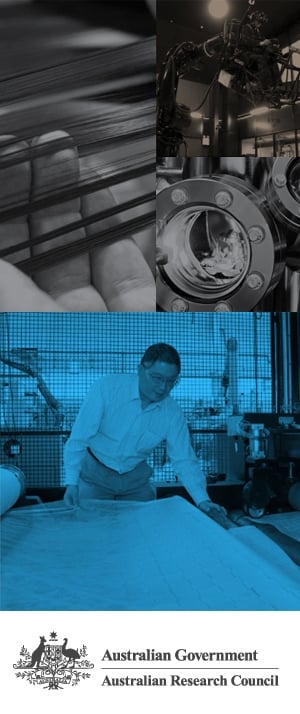Success for cutting edge research
Research news
Efforts over the past decade to progress research in cutting edge technologies have paid off for Deakin University, as reflected in the 2015 Excellence in Research Australia (ERA) ratings, announced today.
The ratings identify research excellence within Australia’s higher education institutions, against national and international benchmarks.
Within Deakin’s theme “Designing Smarter Technologies,” 9 of 11 specific fields of research (FOR Codes) were rated either 4 (Above World Standard) or 5 (Well Above World Standard).
Deakin University’s Deputy Vice-Chancellor (Research) Professor Lee Astheimer said that this success reflected a culture of dedication to excellence in the applied research fields in engineering and technology disciplines.
“These results reflect our strategy to both recruit outstanding researchers and grow serious talent from within the University. This approach is growing in success, based on today’s ERA results,” said Professor Astheimer.
Supported by state-of-the-art infrastructure and equipment, Deakin’s innovative researchers and PhD students are having global impact. Deakin is a world leader in materials science, engineering and information technologies, focused on developing industry-relevant research strengths.
Facilities like Carbon Nexus - Deakin’s globally unique, open-access carbon fibre and composite centre - and the Centre for Intelligent Systems Research, with world-leading simulation, haptics and robotics capabilities, are attracting international industry engagement and helping to seed new SMEs in Australia.
Our researchers are dedicating their expertise and technological know-how to solving 21st century global challenges, including developing lightweight materials for transport, energy storage, cybersecurity and defence solutions, agricultural systems, big data efficiencies and infrastructure lifecycles and sustainability.
Deakin scientists have achieved breakthrough outcomes with real impact in Engineering, Materials and Technology-related disciplines over the past decade. For some examples…In the field of energy, breakthrough developments have included novel safer and more efficient electrolytes and ultra-efficient energy storage systems, with smaller and longer lasting batteries and safer, more efficient electrolytes.
In nanotechnology, world-first boron nitride nanosheets are currently being trialled to help contain and reduce the damage of marine oil spills. A new generation of nanofibre face masks are about to begin mass production in China, through ground-breaking Deakin electrospinning technology.
Deakin’s research team in the Centre for Pattern Recognition and Data Analytics have used machine learning to develop tools to mine medical and hospital data to reveal better predictive patient support and provide hospital cost efficiencies.
Four Strategic Research Centres and the Institute for Frontier Materials all support Smart Technology research at Deakin.
2015 ERA ratings - Designing Smarter Technologies:
Well above world standard (5): Macromolecular and Materials; and Materials Engineering.
Above world standard (4): Physical Chemistry; Artificial Intelligence and Image Processing; Distributed Computing; Electrical and Electronic Engineering; Manufacturing Engineering; Mechanical Engineering; and Nanotechnology.
At world standard (3): Analytical Chemistry; and Information Systems.
For more information on Deakin's ERA results within our other research themes:
Share this story
 Professor Tong Lin has developed ground-breaking electrospinning technology at Deakin.
Professor Tong Lin has developed ground-breaking electrospinning technology at Deakin.
